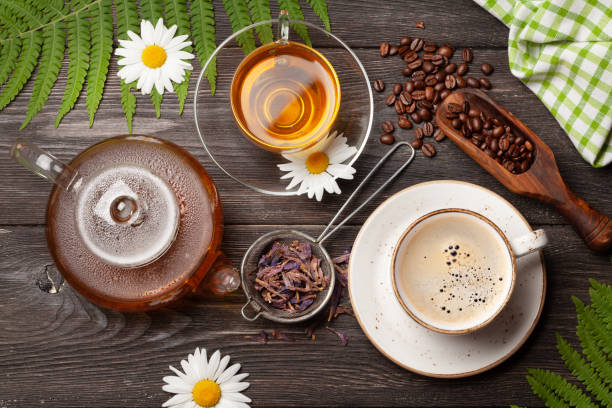Image Source: iStock.photo
For some people, enjoying a warm cup of tea at night is more than just a habit — it’s a natural way to promote better sleep. Interestingly, several caffeine-free herbal teas have been scientifically proven to help relieve symptoms of insomnia.
Insomnia is a sleep disorder characterized by difficulty falling asleep, frequent awakenings during the night, or waking up too early and being unable to go back to sleep. This condition can lead to daytime fatigue, impaired concentration, and an increased risk of stress and anxiety.

Dr. dr. Shirly Gunawan, Sp.FK.
Dr. Shirly Gunawan, a lecturer at the Faculty of Medicine (FK) of Untar and a specialist in pharmacology, explained that the causes of insomnia are quite varied. “Physical conditions such as GERD, as well as psychological factors like stress and depression, and unhealthy lifestyle habits, can all trigger insomnia,” said Dr. Shirly.
However, not all types of tea are suitable for consumption before bedtime. Teas that contain caffeine—such as black tea, green tea, and oolong—can actually worsen insomnia. In contrast, caffeine-free herbal teas like chamomile, valerian, lemon balm, lavender, rooibos, passion flower, and peppermint are known for their relaxing effects that support better sleep quality.
Here is a list of herbal teas known for their natural benefits in helping to relieve insomnia:

Source: Dr. Shirly
“Herbal teas work through various mechanisms,” explained Dr. Shirly. “Some of them interact with Gamma-Aminobutyric Acid (GABA) receptors in the brain, which help calm the nervous system and trigger drowsiness.” Compounds such as apigenin in chamomile or valerenic acid in valerian have been shown to naturally promote deeper, more restful sleep.
Beyond their chemical compounds, the calming effect also comes from the habit of drinking tea as part of a nighttime routine. “This ritual can serve as a signal to the brain that bedtime is approaching, especially when done in a relaxing environment. It aligns with the principles of sleep hygiene recommended in cognitive behavioral therapy for insomnia,” she added.
Nevertheless, the timing of tea consumption is also important. Ideally, herbal tea should be consumed 2–4 hours before bedtime to avoid any stimulant or diuretic effects that could disrupt nighttime comfort.
With the right choice of tea and healthy sleep habits, herbal tea can be an effective natural alternative for managing insomnia—without the need to rely on sleeping pills. (VC/AJ)


